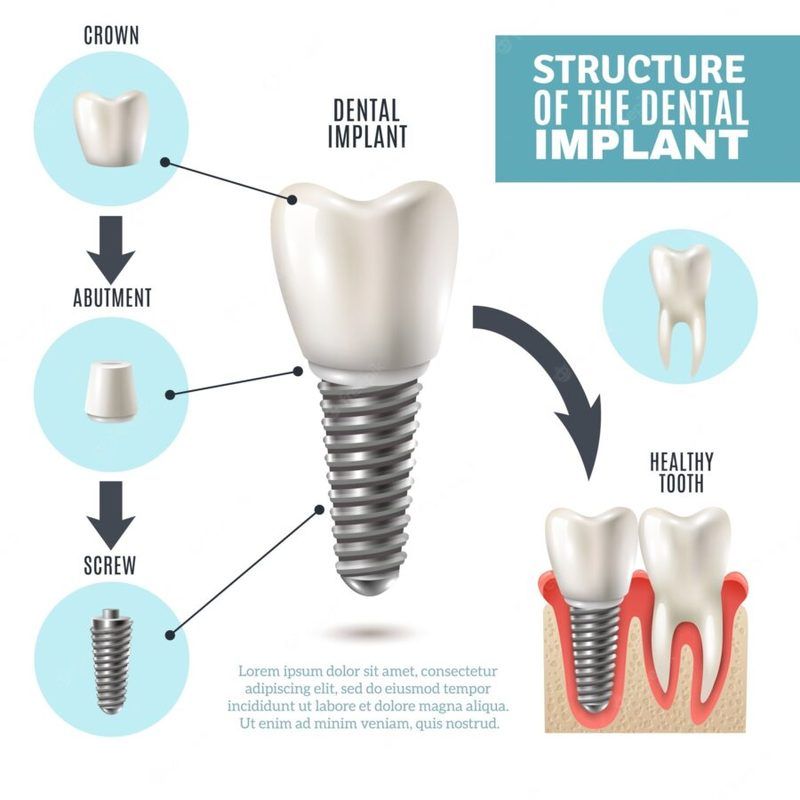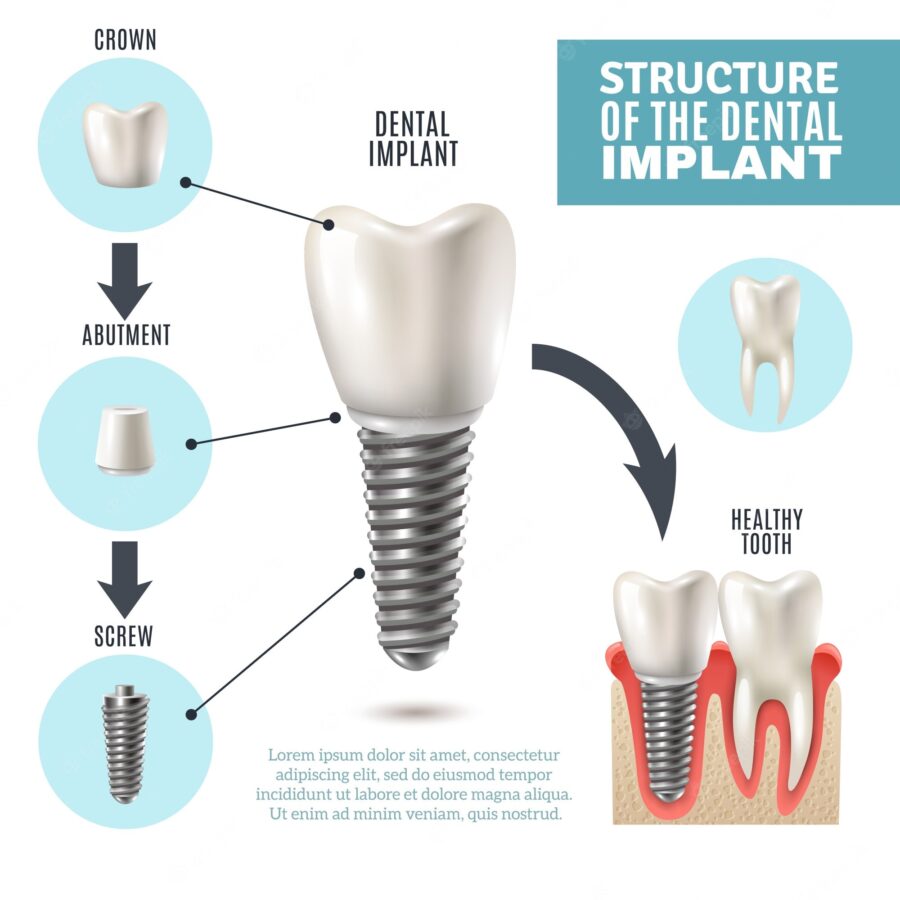
Social Security does not cover dental implants, as its focus is on providing income support for retirees, disabled individuals, and beneficiaries. Dental care, including implants, is generally not part of the benefits package. While Social Security doesn’t directly cover dental expenses, individuals can explore alternative insurance options or assistance programs to help with the cost of dental implants. Checking with dental insurance providers and exploring specific dental assistance programs may offer potential avenues for coverage.

Does Social Security Pay for Dental Implants?
If you’re considering getting dental implants, you may be wondering if Social Security will cover the cost. Dental implants are a popular and effective solution for replacing missing teeth, but they can also be quite expensive. In this article, we’ll explore whether Social Security provides any coverage for dental implants and what other options you may have.
Understanding Dental Sealants
Dental sealants are a preventive dental treatment. They involve applying a protective coating to the teeth to prevent cavities.
Application Process:
- The dentist cleans and dries the teeth.
- Sealant material is applied to the chewing surfaces.
- It bonds to the tooth and is often hardened with a special light.
Target Population:
- Particularly beneficial for children and teenagers.
- Applied to the molars and premolars, which are prone to decay.
Understanding Social Security Coverage
Overview of Social Security:
- Government program providing financial assistance.
- It focuses on retirees, disabled individuals, and those who have lost a loved one.
Coverage Limitations – Dental Care:
- Generally does not cover dental care.
- Primary emphasis on income support, healthcare, and other benefits.
Medicare Coverage for Dental Implants
Medicare Overview:
- Federal health insurance for individuals aged 65 and older.
- Also covers younger individuals with certain disabilities.
Dental Implants Coverage:
- Typically does not cover routine dental care.
- Exceptions for medically necessary procedures, like reconstructive surgery.
Limitations:
- Limited to necessary surgical procedures and associated costs.
- Actual implant or crown expenses may not be covered.
Medicaid Coverage for Dental Implants
Medicaid Overview:
- Joint federal and state program for low-income individuals.
- Varies by state; not all states cover dental implants.
Coverage Considerations:
- Some states may provide coverage for medically necessary dental procedures.
- Research state-specific coverage options and eligibility criteria.
Other Financing Options for Dental Implants
Payment Plans and Financing:
- Dental clinics may offer payment plans.
- Third-party financing companies specialize in dental financing.
Discount Plans and Savings Plans:
- Annual fee for discounted rates on dental services, including implants.
- Not insurance, but can reduce overall treatment cost.
Benefits of Dental Implants
Long-Term Solution:
- Dental implants offer durability similar to natural teeth.
- Long-term solution for replacing missing teeth.
Improvements in Oral Health:
- Enhances oral health, speech, and comfortable eating.
- Boosts self-confidence by enhancing smiles.
Taking Care of Your Dental Implants
Oral Hygiene Practices:
- Regular brushing and flossing essential for implant and tooth health.
- Routine dental check-ups crucial for ongoing care.
Professional Guidance:
- Consult a qualified dental professional.
- Assessment of oral health, discussion of treatment goals, and guidance on care.
Maintenance Recommendations:
- Dentist may recommend specific oral care products or techniques.
- Optimal oral health maintenance for longevity of dental implants.
In conclusion, Social Security generally does not cover the cost of dental implants. However, there may be exceptions for medically necessary procedures under Medicare or Medicaid. It’s crucial to explore all available options and consult with your healthcare provider to determine the best course of action for your specific situation. Remember, dental implants can be a worthwhile investment in your oral health and overall well-being.
Key Takeaways: Does Social Security Pay for Dental Implants?
- 1. Social Security does not typically cover the cost of dental implants.
- 2. Dental implants are considered a cosmetic procedure by Social Security.
- 3. Medicare also does not cover dental implants.
- 4. Private insurance plans may offer coverage for dental implants.
- 5. Research alternative financing options for dental implant costs.
Frequently Asked Questions
Question 1: Are dental implants covered by Social Security?
Social Security does not cover dental implants as they are considered cosmetic and not medically necessary. Alternative funding sources include private dental insurance, discount plans, financing options, dental schools, or nonprofits offering discounted services.
Question 2: Does Medicare cover dental implants?
Medicare usually doesn’t cover dental implant costs, as it primarily focuses on hospital and medical expenses. However, in specific medically necessary cases, dental procedures may be covered. To address dental implant expenses, individuals enrolled in Medicare should explore private dental insurance plans or inquire about financing options from dental clinics. Some dental schools or nonprofit organizations may also offer discounted or low-cost dental implant services for eligible individuals.
Question 3: Can Medicaid help cover the cost of dental implants?
Medicaid coverage for dental implants varies among states. While Medicaid generally provides healthcare coverage for low-income individuals, dental care inclusion varies. Some states offer limited dental coverage, potentially including dental implants, while others may not cover them. Individuals with Medicaid seeking dental implants are advised to contact their state’s Medicaid office or visit their website for coverage details. Additionally, reaching out to local dental clinics or nonprofits offering dental services for Medicaid recipients can help inquire about available options for dental implant coverage.
Question 4: Are there any other government programs that cover dental implants?
While Social Security, Medicare, and Medicaid typically don’t cover dental implants, government programs like CHIP may offer assistance, including dental coverage for children. Veterans may find dental implant coverage through the VA, with eligibility based on factors like service-connected disabilities and income. Contacting local VA healthcare facilities is recommended for veterans seeking more information.
Question 5: What are some alternative options for financing dental implants?
When government programs like Social Security, Medicare, or Medicaid don’t cover dental implant costs, financing alternatives exist. Dental clinics often offer payment plans, while private dental insurance or nonprofit organizations may provide discounted services for eligible individuals. Researching and understanding terms is crucial for the best financing solution.
What options do you have when Medicaid denies your dental implants?
Final Thoughts: Can Social Security Help Cover Dental Implants?
While Social Security doesn’t directly cover dental implants, alternative avenues exist. Medicare Advantage plans may provide coverage, and some states offer limited Medicaid coverage. Dental discount plans and nonprofits also assist with dental care costs. Researching options and consulting healthcare professionals helps individuals find financial support for obtaining dental implants, enhancing oral health. Proactivity in seeking assistance enables individuals to navigate various avenues, ensuring the best course of action based on their specific needs.
Call or Book appointment online
:Ace Dental Care Alpharetta office: 678-562-1555 - Book Now
Ace Dental Care Norcross office: 770-806-1255 - Book Now
Disclaimer
This blog post was generated by artificial intelligence. The content of this post may not be accurate or complete, and should not be relied upon as a substitute for professional advice. If you have any questions about the content of this post, please contact us.
We are constantly working to improve the accuracy and quality of our AI-generated content. However, there may still be errors or inaccuracies. We apologize for any inconvenience this may cause.





